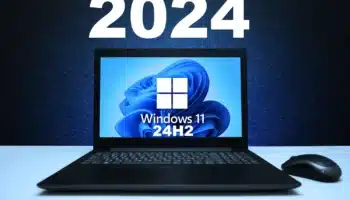Android invades Iran -- Ahmadinejad awaits Candy Crush Saga
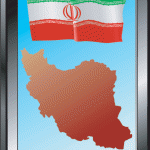
On June 14, the people of Iran exercised freedom when they voted for a new President in the country's election -- a great moment. However, they are now able to exercise yet another freedom -- to download the free Android app of their choice.
Now Google announces to developers that "starting today you can make your free apps available in Iran". That's right, Iranians can now download free apps from Google's Play Store.
Feedly Pro now available for all users
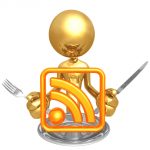
When Google unceremoniously killed off Reader, it opened the door for alternatives, the biggest of which is Feedly, which had to scramble to beef up server capacity and bandwidth to handle its new-found popularity. The problem is not a need for customers, but a way of monetizing the service -- all of those upgrades must be paid for.
When Feedly first rolled out Pro accounts it was on a limited basis -- it accepted the first 5,000 to sign up and then cut off the plan. According to Feedly, "the funds from that campaign helped us invest in the infrastructure and customer support needed to make Feedly pro generally available".
Newark element14 launches a heatsink for the Raspberry Pi

I’ve personally never had any great problems with my Raspberry Pi overheating, but then I work in a cool office and rarely push the uncased credit card-sized device to its limits.
If you do have problems with the ARM GNU/Linux computer getting a little too warm, the good news is you can now buy a heatsink for it.
Google's Android is a trojan horse -- past performance does not guarantee future results

In 2007, Apple ushered in the touch-screen smartphone era with the iPhone. Sure, there were touch-screen smartphones before it, but Apple's device was a revolution. However, with the launch of the original iPhone also came the launch of critics. The lack of expandable memory, copy and paste and removable battery was largely lambasted.
In 2008, the first Android smartphone was launched by HTC, named the Dream or G1, depending on the market. Android was able to capitalize on the iPhone's perceived shortcomings by offering the features that the iPhone didn't. However, fast-forward to 2013 and Android devices are slowly losing removable batteries and SD card slots. While Android is busy removing features, Apple has added them -- copy and paste. In other words, Google has slowly removed the features that differentiated its device from the iPhone. So, at this juncture, what is the point of Android?
AV-Comparatives puts Android security under the spotlight

It's become almost unthinkable to use a Windows PC without some form of protection and that’s put the emphasis on other systems when it comes to security. Last week independent testing organization AV-Comparatives released its report on Mac security and now it's Android’s turn.
With mobile devices it's important to guard not just against hackers but against the loss of the device itself. Smartphones are an attractive target for thieves and security software needs to make the data on them difficult to access for the thief but still easy to get to for the owner. Most of the products tested offer some form of anti-theft measure, with either the ability to lock the phone remotely or to track it.
G Cloud Backup receives large update
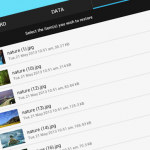
Its all about the cloud these days. At least that is what we are being told. Truth is, it is a rather handy product of modern computing, and one that I use daily. Now G Cloud Backup, a product from Genie9, announces a new update to its Android app that aims to improve and simplify this experience even more.
The app backs up your messages, call logs, contacts, photos and music. You will need to sign up for an account, but both the app and the account are free. Customers get 1 GB of free storage, though more can be earned.
5 major reasons why Surface RT is here for the long run
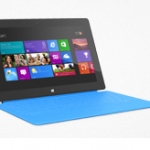
Just two years ago, before the Surface RT was even on the horizon, another alternative entrant in the computing market was posting miserable (Surface RT-esque) sales after launching. The suspect in question, Chromebook, was only able to post about 5000 units sold for Acer in the two months after its launch in June 2011. Samsung supposedly fared even worse. Analysts across the industry were taking bets on when Google would throw in the towel on Chromebook. They all but called the device destined to fail.
Fast forward just two years, and Chromebooks now represent the fastest growing PC segment already. In fact, as of July 2013, they officially snagged 20-25 percent of the sub-$300 laptop market. And the warm feelings for Chromebook are anywhere but over. The radical alternative to Windows and Apple laptops is poised to grow another 10 percent in just 2013 alone. The burning question still stands: how did the analysts get it so wrong?
THIS is how Microsoft should advertise Windows 8

While every armchair tech pundit and analyst pontificates on Steve Ballmer’s retirement bombshell and speculates on who Microsoft’s next CEO might be and what the future holds for the tech giant, I’d like to take a moment to just enjoy this video of Steve selling Windows 1.0.
Sure, there are many amusing videos of the departing CEO on the web -- including his famous monkey boy dance, this one where he disses the iPhone, and of course developers, developers, developers etc. But it’s Steve in full used car salesman mode that I really like.
Clarizen mixes social networking and project management

Californian work collaboration and project management specialist Clarizen has launched the latest version of its cloud-based platform. Clarizen v6 combines social engagement and project management to achieve better results.
Clarizen’s co-founder and CEO Avinoam Nowogrodski says, "Clarizen v6 was designed from the ground up to support the requirements of today's changing modern workplace. Increasingly, companies and organizations are staffed by people of different generations, with different skill sets and who are located around the world. Clarizen v6 delivers on our Work Funnel concept of connecting social context, tasks and projects on a single cloud-based platform, so collaboration will drive results".
How To: Use Outlook.com as a free custom domain email host

Google shocked the tech world back in December of 2012 when, out of nowhere, it announced that Google Apps Free Edition was going bye-bye. I was also a bit disappointed to hear about this, as it provided a free way for clubs and small businesses of 10 users or less to leverage the power of Google Apps for their email, calendaring, contacts, etc.
Yet as a consultant to numerous clients supporting clients on the Free edition, who knows the unreasonable expectations they sometimes hold the (free) service to, I can see Google's justification for pruning the bushes here. We can all agree: it was good while it lasted.
Radical.FM for iOS -- a new addition to the streaming music category

About 3 months ago, my heart was aflutter for Google's Play Music All Access. I was so enamored that I declared iTunes dead. While it remains my favorite streaming music service, there is still not an iOS version. I am typically an Android guy, however, there is a fourth-generation iPod touch in my family that gets use too -- mostly for music.
This week, I discovered a new addition to the crowded streaming music category, called Radical.FM. The question becomes: is it a worthy addition to iOS?
Moto me, don't Moto meh
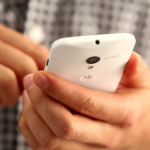
I am apprehensive about Googorola's choice to launch Moto X with AT&T -- the carrier that failed with HTC First (Facebook phone), like Verizon Wireless with Microsoft Kin, which were targeted at similar audiences. My concern: Death in childbirth. A device so different, in terms of responsiveness, must be experienced by many people fast to build excitement and demand.
In business and marketing perception is everything. Negative perception, or lack of any at all, can kill Moto X. Motorola's top priority should be fast sales and building social media buzz around touchless and personalization benefits. I don't see either coming from the exclusives given to AT&T.
The most popular stories on BetaNews this past week

Looking at the the biggest stories on BetaNews from August, 18 - 24, 2013. Perhaps the biggest news from the last seven days -- at least in part because it came as such a surprise to most people -- was the announcement that Steve Ballmer intends to resign from Microsoft within the year. The CEO is planning to step down as soon as a suitable replacement is found, but there has been speculation that Ballmer may have been pushed rather than opting to jump.
Getting my hands on a Surface Pro for the first time gave me an opportunity to try out Windows 8 as a touchscreen operating system. Despite loving the Surface in general, I pondered whether the use of the same version of Windows 8 as on desktop machine may have been what's stopping Microsoft’s convertible devices from becoming more popular. At the same time, Brian fell in love with the Lenovo Yoga, citing Windows 8 as one of the computer’s strengths.
Microsoft needs someone from the outside
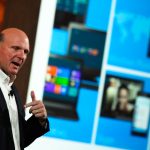
Like many, I was caught off guard by the news of Steve Ballmer's early retirement. Until the crash of Surface and Windows 8, I had assumed he would be there until at least 2017/18. But with Microsoft's recent stumbles in its transition to mobile devices I had a sneaky suspicion he might not make it to 2017.
Before Microsoft's unveiling of Windows 8 and the company's new consumer strategy I was not a big fan of Ballmer as CEO. I was among the many who felt Microsoft needed to make a change at the top. However, once I began to see the consumer strategy come together I started to have a change of heart about him, although I was never quite 100 percent in his camp because of the obvious missteps in recent months.
Bing introduces new product search
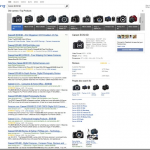
In today's search market, simply having the audacity to take on Google seems somewhat absurd, but Bing, despite the long odds, continues to plug away at it. Sometimes it is with innovation, sometimes with mud-slinging. Today, thankfully, it is the former. The Microsoft search engine, in the midst of the Steve Ballmer news, is announcing another improvement to its offerings.
The latest change comes in the form of a new product search experience. "Harnessing the depths of our index encompassing tens of millions of individual products and trained by advanced machine learning, Bing will now show you relevant products directly in the main results page. You no longer need to waste time navigating to a dedicated 'shopping' experience to find what you’re looking for. Based on your intent, we'll serve the best results", promises the Bing team.
Most Commented Stories
© 1998-2024 BetaNews, Inc. All Rights Reserved. Privacy Policy - Cookie Policy.

